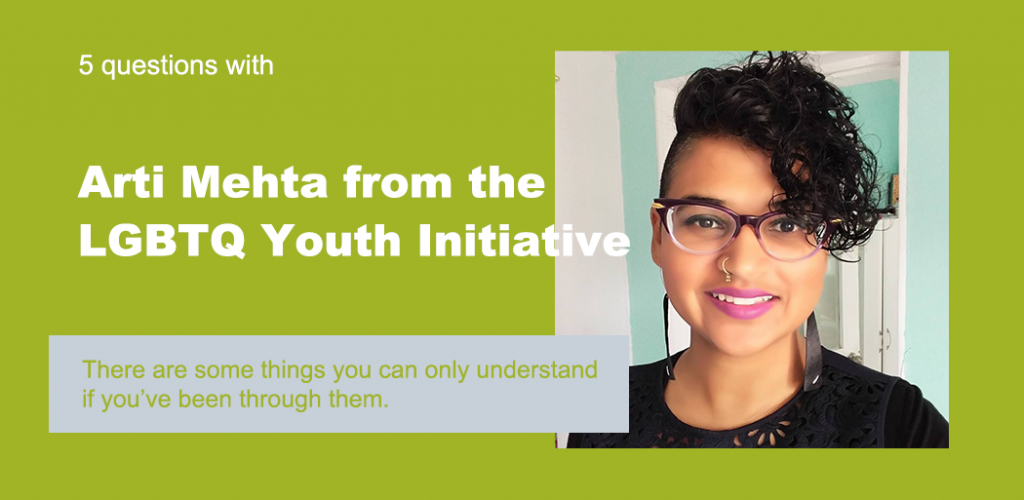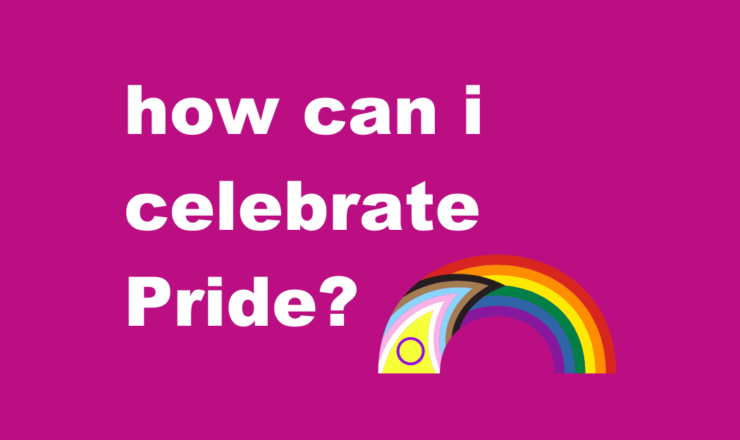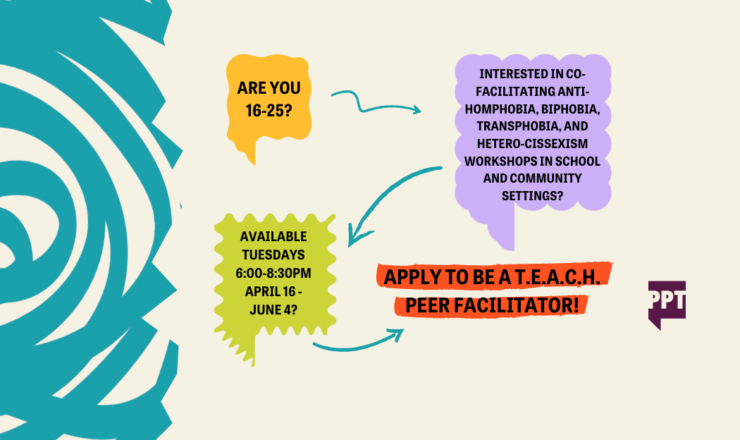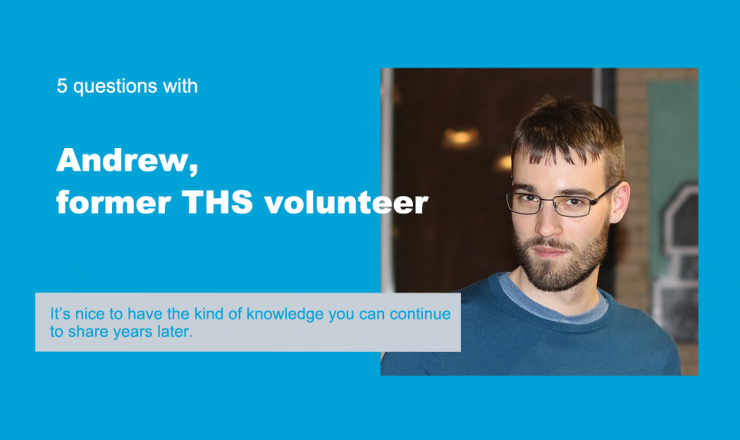

Did you know that Teen Health Source is a program of Planned Parenthood Toronto? Did you also know that they have a bunch of other community programs? They do, including the LBGT Youth Initiative! Curious about what this area of PPT does? Well, we sat down with Arti (self-identified crip, brown, queer Social Worker) to find out. Arti has worked in Queer and Trans* communities for 15 years, and is one of the coordinators of the program.
Editor’s Notes:
Thank you so much for your time, Arti!
The LGBTQ Youth initiative is a super awesome 4-year program that is trying to do many things. One of those things is research. We conducted a needs assessment of what LGBTQ youth need and want; what services are available, what’s missing, etc. We’ve been in the process of developing programming that tries to fill in the gaps that the youth identified.
Alongside the research and programming piece, I work on communications and educations. We’re developing a campaign called Send The Right Message, which is an anti-homophobia/transphobia/biphobia campaign for cisgender and heterosexual people. We’re also creating a service directory for LGBTQ youth so that they know what’s happening in the city and what’s available.
We also have a program called Youth Led Initiatives which is basically small pots of money we will be offering to LGBTQ youth who want to run their own programs.
The whole project itself is run by a Youth Advisory Committee (YAC), which is made up of 13 queer and/or trans youth under 25, who call the shots for the whole program. They do all the thinking pieces (like creating the posters, making videos, etc.), while I do the logistical things.
When we started off our work, we made sure to be clear about our values. We did an anti-oppression training and we talked a lot about what PPT values are. We then spent a really long time developing our group guidelines: we asked people what we need to feel safe, we had them journal their needs, and we did activities to help facilitate the creation of the guidelines.
It took many, many weeks for us to create our guidelines so that everyone felt that their needs were being met. We also provide trainings – for example, there are some folks who are neurodivers*, and a lot of other people didn’t know what that meant, so we did a neurodiversity training.
We operate with a sense of generosity, so when people don’t really get it, or when they say something that is offensive, the whole group feels that they can address it. There isn’t a lot of blaming and shaming, instead people offer, “Oh, that’s not how I feel…”. We use “I” statements as per the group guidelines. Being open to communicate also ties into the leadership aspect of the program. We don’t expect everyone to know everything before they come to the YAC. There needs to be room to grow and be challenged.
(For more info on what it means to be neurodiverse, check out this page from Everyday Feminism: Link.)
Referrals is a challenge that comes up a lot. Connecting people to different resources like employment opportunities or receiving mentorship, given the marginalization most folks in these populations face, is often a challenge.
Yes. I think that it’s important for some positions to be set aside for LGBTQ+ people. Given that this population is marginalized, it can hard to find work in general. It’s also important to recognize that there are some things you can only understand if you’ve been through them. It’s also tricky because I’m not a trans person, but I’m still writing the trans sections of the website, for example. That stuff does get complicated, because there’s no way you can ever be every identity, but I think still having some personal lived experience is incredibly important.
A strong connection to the community is important: most of the way I get things done when I’m networking is because I have a lot of personal connections to the community. I think that would be harder if you weren’t LGBTQ+ -identified.
We offer programming, like our current Re:framed film screening series, so that LGBTQ youth have a way to hang out that is low pressure.
We’re lucky enough to live in Toronto where there are a lot of groups and programs being run for LGBTQ+ youth. The issue is that people don’t know about them, so we’re really hoping that the service directory helps in connecting folks. We’re hoping to build some sort of online calendar so you can easily know what’s going on. We also want to have a social media presence to help with the connection pieces a bit, especially for folks who aren’t necessarily out yet.
We’re hoping for our website to be out in the Winter of next year, maybe 2018!
If you have questions about this topic, feel free to contact one of our peer educators. [Link]
Last Updated: August 2021

Learn about the different ways you can uplift the LGBTQ+ community during Pride month and beyond!

Planned Parenthood Toronto is recruiting volunteers for our anti-homophobia and anti-transphobia educational workshop program, TEACH!

Did you know that Teen Health Source has been around for 25 years! To help celebrate our 25th Anniversary, we’re checking in with some of our previous volunteers. Today we’re hearing from Andrew!